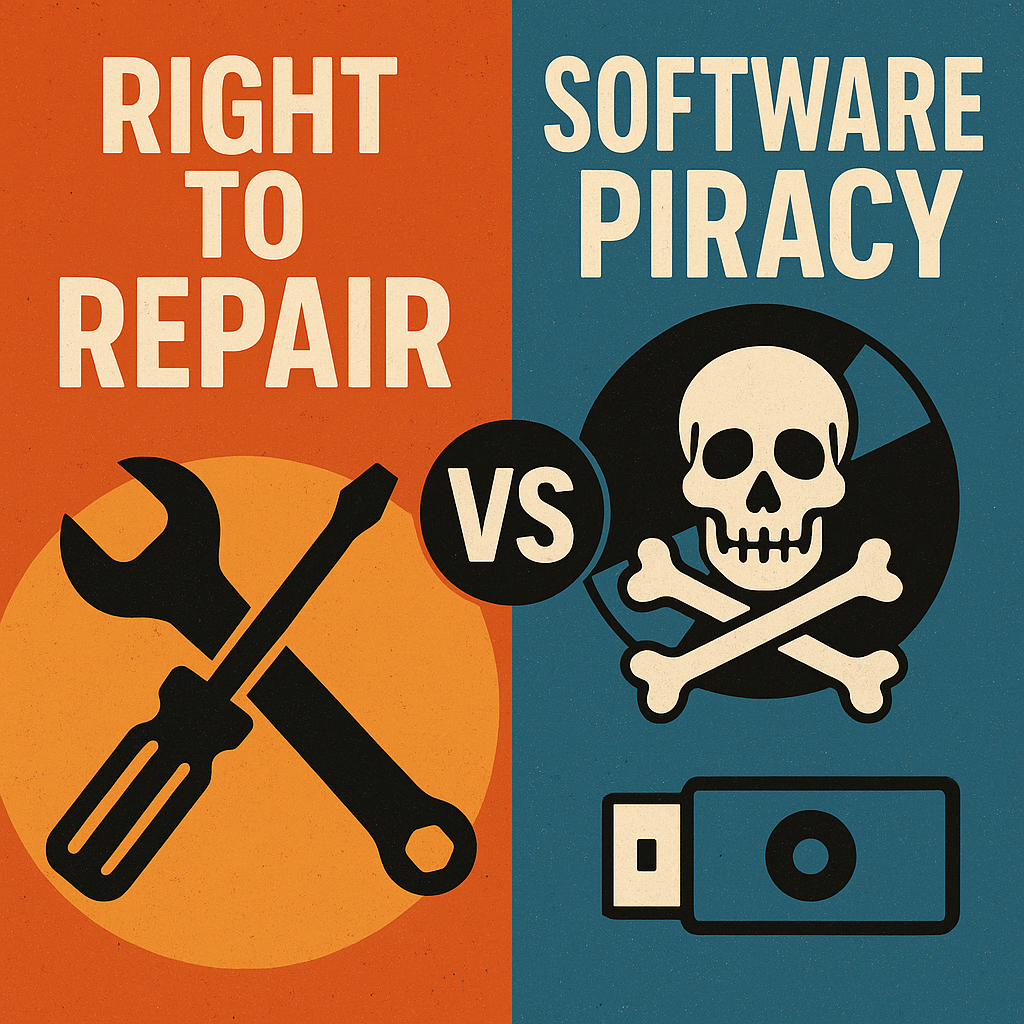by ko3moc, 01/07/2025
Not all treasure is silver and gold. – Jack Sparrow
In the digital age, the line between buying and licensing has blurred. Consumers often believe they own the media they purchase—whether it’s an e-book, a movie, or a video game—only to discover they’ve merely bought a license to access it. If corporations can redefine ownership, then why can’t consumers redefine piracy?
The Illusion of Ownership
When you “buy” a digital product, you’re often just paying for conditional access. Companies can revoke licenses (like Amazon deleting purchased e-books), lock content behind DRM, or shut down services, rendering your purchases useless. If you don’t truly own what you paid for, then piracy isn’t theft—it’s reclamation.
In the age of Netflix, Spotify, and cloud-based gaming, ownership is becoming obsolete. Why buy a movie, album, or game when you can stream it instantly? But convenience comes at a cost—we’re trading true ownership for temporary access, and in the process, we’re losing real value.
You Don’t Own Anything
When you buy a DVD, a vinyl record, or a physical game, it’s yours forever. But streaming services can remove content at any time—movies disappear from libraries, songs get delisted, and games are taken offline. You’re not a collector; you’re a renter.
The Illusion of Choice
Streaming platforms control what you see. Algorithms push certain content while burying others, and licensing deals dictate what stays or goes. When you owned media, you curated your own collection. Now, corporations curate it for you.
Higher Long-Term Costs
A $15 monthly subscription seems cheap—until you realize you’ve spent hundreds over the years with nothing to show for it. Buying a movie once might cost more upfront, but you keep it forever. With streaming, you pay forever and own nothing.
Lost Cultural Artifacts
Physical media preserves culture. Books go out of print, films are edited or censored, and music gets pulled for licensing disputes. If we rely solely on streaming, future generations may lose access to art that corporations decide isn’t profitable.
Piracy as a Response to Broken Systems

If corporations treat purchases as temporary rentals, why should consumers respect artificial scarcity? Piracy thrives when access is restricted, prices are inflated, or content is region-locked. Many pirates aren’t thieves—they’re frustrated customers denied real ownership.
Not only software
Nintendo is infamous for its aggressive—some would say ruthless—crackdown on piracy and copyright infringement. From lawsuits against ROM sites to hacking lawsuits that bankrupt individuals, the company has earned a reputation for defending its IP with an iron fist.
A History of Legal Battles
- In the 2000s, Nintendo sued emulator sites like LoveROMs and EmuParadise, forcing them to remove thousands of games.
- They targeted modders and hackers, even going after people selling modified consoles.
- In 2018, a court ordered a ROM site owner to pay Nintendo $12 million in damages—a clear warning to pirates.
Modern Enforcement
Nintendo still actively DMCA’s fan projects, mods, and even YouTube videos featuring ripped game music. Their stance is simple: zero tolerance. While critics argue this hurts preservation and fair use, Nintendo insists piracy threatens their business.
The Result?
Nintendo’s strict policies have reduced large-scale piracy of their games, but they’ve also fueled resentment among fans who believe the company is too controlling. One thing’s certain: if you pirate Nintendo games, expect consequences.
Right to Repair vs. Software Piracy

As the Right to Repair movement gains momentum, it highlights a growing tension between corporate control and consumer freedom. Many manufacturers use software locks, DRM, and proprietary tools to prevent users from fixing their own devices—effectively forcing them into authorized (and often expensive) repair channels.
When Piracy Becomes a Workaround
Some users resort to cracked software, hacked firmware, or unauthorized tools to bypass these restrictions and regain control over their devices. While corporations label this as piracy, many see it as self-defense against artificial repair barriers.
The Ethical Dilemma
- Corporations argue that circumventing software locks is theft, risking security and profits.
- Advocates counter that if companies refuse to provide repair access, users have a moral right to find alternatives—even if that means “pirating” their own devices.
The Future of Ownership
As right-to-repair laws slowly progress, the line between piracy and liberation remains blurred. Should consumers have the freedom to modify what they own—even if it means breaking digital locks? The debate isn’t just about legality—it’s about who truly controls our devices.
A Sticker Worth Sticking
The phrase “When Purchasing Isn’t Ownership, Piracy Isn’t Theft” isn’t an endorsement of piracy—it’s a critique of an industry that prioritizes control over consumer rights. If companies won’t sell us real ownership, why should we play by their rules?